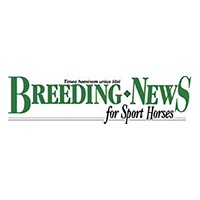By Celia Clarke
When breeders and studbooks in the EU and the UK began to tackle the many issues raised by Brexit, they were already prepared for possible long delays at borders, a major increase in paperwork, and a possible down-turn in import and export trade in both directions – almost all due to a new lack of access to TRACES.
TRACES is the European Commission’s online platform for sanitary and phytosanitary certification required for the importation of animals (among other things...), into the European Union, and the intra-EU trade and EU exports of animals and certain animal products.
What they did not foresee was a major threat to the local, national, and international structure of breeding organisations and the many operations that depend on them. So, what was this threat and how has it finally (hopefully) been resolved?
Cause and effect
The main cause of the threat was the fact that once the UK left the EU (effectively 2021, for these purposes), the status of UK studbooks changed from recognised and approved, to unrecognised studbooks based in a Third Country (which the UK became automatically once it left the EU). This meant that equines with a passport/UELN issued by a UK studbook could no longer be recognised as a breeding animal by any EU approved studbook, and that even the identities of horses and ponies imported into the EU short-term for training and competition purposes were under threat. This change in status also affected cattle, sheep, and pigs so was a major threat to all sectors of the UK agricultural industry, and also meant that frozen semen, zygotes, oocytes, and embryos destined for transplantation could no longer be traded across EU-UK borders.
This naturally caused great concern amongst UK studbooks and breeders, and as such gave rise to a flurry of action on the part of DEFRA – the UK department of agriculture, with the national status of a competent authority when dealing with EU-related matters at a national and international level. They needed to get the well-over 50 UK studbooks, formerly recognised by the EU, reinstated as approved studbooks.
Thanks to a concerted movement on both sides of the border, full approval of all these studbooks – including several WBFSH members, as recognised studbooks based in a Third Country (usually known as Third Country Listing) – was granted by the EU at the end of November 2020, well in time for the January 2021 deadline.
However, all has not yet been resolved, as during the Spring of this year it was revealed that the UK had to do the same for all EU studbooks (and herd books for other agricultural animals) that had formerly been automatically recognised with DEFRA, and that the deadline for this would be July 2021... To read the complete article you need to be a subscriber
CLICK HERE TO SUBSCRIBE TO BREEDING NEWS
SUBSCRIBERS CAN READ THE COMPLETE ARTICLE BY LOGGING IN AND RETURNING TO THIS PAGE




